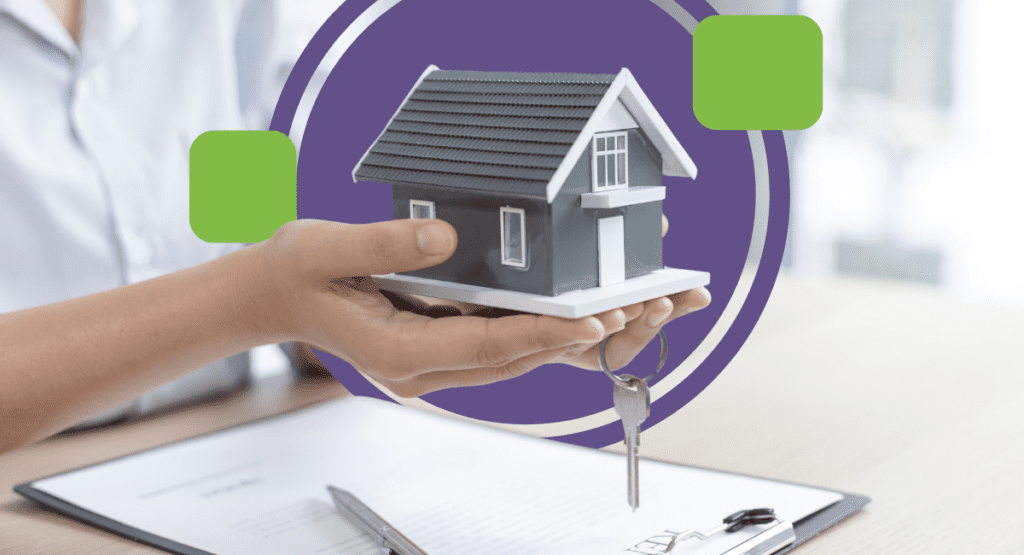Buying a home is one of the most significant (and expensive) purchases individuals can make. When you buy a home, you receive a mortgage through a bank or private lender, and typically pay on it for 15 to 30 years.
Physicians have access to another type of mortgage — a physician loan. A physician mortgage loan is a type of mortgage that comes with unique benefits, like no down payment requirement. A physician loan can help doctors qualify for a mortgage earlier despite large student loan debt balances.
Keep reading to learn more about physician loans, their benefits and disadvantages, and how to determine how much house you can afford.
Is a physician mortgage different than other mortgage products?
Physician loans are similar to traditional mortgage loans, but they have a few key differentiators:
- The debt-to-income ratio is more flexible.
- There is often no down payment.
- Private mortgage insurance is not required.
Physician mortgage loans are similar to conventional mortgage loans but come with added benefits and more lenient requirements geared toward doctors and residents.
Most med school graduates and residents enter the workforce with significant student loan debt. According to EducationData.org, the average medical school graduate leaves school with $243,483 in total student loan debt.
While new doctors and residents may earn a livable salary, it's nothing compared to what they can make as their career progresses. A lower income during the early working years, especially compared to a high debt balance, can cause your debt-to-income (DTI) ratio to skyrocket.
Usually, a high DTI can keep you from qualifying for a home loan. Lenders recognize this unique scenario and offer physician loans programs. It’s a chance for newer doctors to own a home before they become high earners.
Physician loans offer doctors some allowances that other borrowers typically don't receive. Some of the unique benefits of a physician mortgage loan include:
Get Quotes For Your Doctor Mortgage
Up to 100% financing
Depending on the lender, doctors may have the option to finance their entire home purchase without a down payment. In some cases, you may only need to provide a down payment of 5% to 10% of the purchase price.
For example, Bank of America requires just a 5% down payment on mortgages up to $1 million and 10% down payments on mortgages up to $1.5 million. Fifth Third Bank finances up to $1.25 million without a down payment for new physicians, fellows and residents.
New doctors and recent graduates generally aren't in a financial position to put down 20% on a new house. The option of a small down payment amount, or possibly none at all, opens the door to homeownership much sooner than expected. In many cases, you can even close on a home before you start working.
No private mortgage insurance
Another perk of physician loans is that you don't need private mortgage insurance (PMI). Lenders typically require borrowers to have PMI if their down payment is less than 20% of the home sale price.
If you are required to get PMI, you have to keep it until you reach a certain level of equity in your home. Guidelines like these help protect lenders from borrowers who can't make payments.
Private mortgage insurance can be expensive, so you can save considerable money each year by bypassing this traditional requirement.
More lenient debt-to-income ratio requirements
Med school grads usually leave school with extremely high debt-to-income ratios. Between little to no income and a mountain of student loan debt, residents and new doctors typically have an uphill battle to qualify for traditional home lending.
Physician loans work differently. In many cases, lenders don't include student loan debt into your DTI when determining eligibility for a physician loan.
Higher limits
Doctor loans typically come with higher loan limits than traditional mortgage loans. Depending on the mortgage lender, you can often qualify for physician loans up to $1 million or more.
Related: Do Student Loans Affect Buying a House? Getting a Mortgage?
How much can physicians afford to spend on a house?
Being a new doctor and resident doesn't mean you have to settle for less house. Several lenders allow new doctors to qualify for loans amounts of up to $1 million or more. Established doctors may be eligible for loan amounts of up to $2 million or more. Loan limits vary between lenders.
But just because you can qualify for a higher loan doesn't mean you should take out that much. Physician loans offer several benefits for doctors, but they aren't without risk.
Any time you borrow money, especially a larger amount, there's a risk that you can't afford to make payments. The last thing you want to do is buy more house than you need or can afford just because you can.
Related: Renting vs. Buying a House for Physicians: How to Decide?
Factors that determine how much house you can afford
Taking out a physician mortgage is a big decision. Several factors play a role in determining how much house you can afford:
- Income: Look at your current and potential future income before deciding how much to spend on a new home.
- Cash reserves: Having several months of expenses saved in an emergency fund can protect you from unexpected costs that could keep you from making your mortgage payments.
- Debts: Add up all of your debts, including student loans, to get a clearer picture of how much you'll need to pay back.
- Monthly expenses: Factor in other monthly expenses when determining how much you can afford to pay each money on your mortgage.
- Your credit score and history: Having a good credit score can help you qualify for lower interest rates. Lenders look at your credit score and history to determine your creditworthiness when you apply for a home loan.
- Interest rates: Interest rates can affect how much you can afford. A portion of each mortgage payment goes to paying off interest, so higher rates can increase your total monthly payment.
- Other home costs: Buying a house often costs more than just your mortgage payment. Don't forget about property taxes, closing costs, HOA and additional fees, home insurance, utilities and other expenses.
Weigh all of these factors when determining how much money to spend on a home, especially earlier in your career. You never know what will happen. It may make sense to buy a less expensive house now and move on to another, bigger home as your circumstances change.
Related: How to Buy a House With Student Loan Debt
Who qualifies for a physician loan?
Physician loans are generally available to doctors with specific degrees, such as MDs and DOs. Some lenders offer loans to other healthcare professionals with DVM, DPM, DDS, and DMD degrees like:
- Dentists
- Orthodontists
- Veterinarians
Credit score and DTI requirements vary by lender. Mortgage lenders perform hard credit inquiries to dive into an applicant's credit history to determine eligibility and set interest rates.
Physician loans are typically reserved for buying or refinancing primary residences. Many lenders exclude borrowing for second homes or investment properties with physician mortgages.
Are physician mortgages worth it?
The opportunity to purchase a home early in your career (or before it even starts) is a dream for many. If that's you, a physician loan can help you achieve that goal before you have the financial means or credit history to qualify for a conventional loan. It can also save you money upfront with a smaller down payment and no PMI costs.
Physician loans aren't without risks. Depending on your credit, you could end up with a higher rate than a conventional mortgage loan. There's also a risk of an underwater mortgage if your property value decreases, especially with less equity built up from a smaller down payment.
Weight the benefits and drawbacks of a physician loan before applying. When you’re ready, check out our list of top physician mortgage lenders in each state.
Get Quotes For Your Doctor Mortgage

